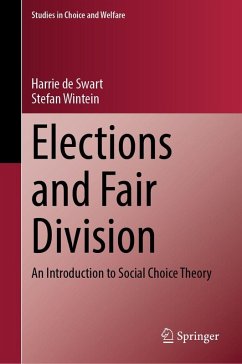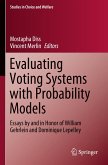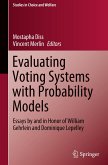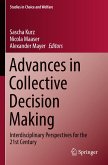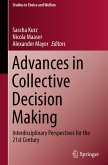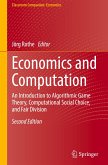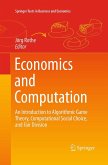This graduate textbook introduces to social choice theory, with a specific focus on elections and fair division, supported by mathematical theories and practical implications.
Part I sheds light on the complexity of fair elections, and presents classical results from social choice theory, including May's, Arrow's, and Gibbard-Satterthwaite's theorems, and how they impact the organization of fair elections. They also discuss the measurement of voting power in such elections via the Penrose-Banzhaf index and the Shapley-Shubik index. Besides these more or less classical topics, the authors introduce Balinski and Laraki's transformative Majority Judgment framework. Moreover, Part I concludes by critically addressing flaws in contemporary Western democracies and proposing an alternative political system.
In Part II, the book dissects claims-based and preference-based fair division, explaining that the focus will be on the former. In particular, the focus will be on models that can elaborate on and make precise the thought that `fairness requires that claims are satisfied in proportion to their strength , as advocated for in the philosophical literature. The authors scrutinize various formal models, ranging from (weighted) bankruptcy problems to cooperative games, assessing their alignment with this claims-based conception of fairness. Part II concludes with a brief overview of preference-based fair division.
This textbook is a crucial resource for graduate and advanced undergraduate students and scholars, bridging the worlds of mathematics, philosophy, political theory, and social justice.
Part I sheds light on the complexity of fair elections, and presents classical results from social choice theory, including May's, Arrow's, and Gibbard-Satterthwaite's theorems, and how they impact the organization of fair elections. They also discuss the measurement of voting power in such elections via the Penrose-Banzhaf index and the Shapley-Shubik index. Besides these more or less classical topics, the authors introduce Balinski and Laraki's transformative Majority Judgment framework. Moreover, Part I concludes by critically addressing flaws in contemporary Western democracies and proposing an alternative political system.
In Part II, the book dissects claims-based and preference-based fair division, explaining that the focus will be on the former. In particular, the focus will be on models that can elaborate on and make precise the thought that `fairness requires that claims are satisfied in proportion to their strength , as advocated for in the philosophical literature. The authors scrutinize various formal models, ranging from (weighted) bankruptcy problems to cooperative games, assessing their alignment with this claims-based conception of fairness. Part II concludes with a brief overview of preference-based fair division.
This textbook is a crucial resource for graduate and advanced undergraduate students and scholars, bridging the worlds of mathematics, philosophy, political theory, and social justice.

